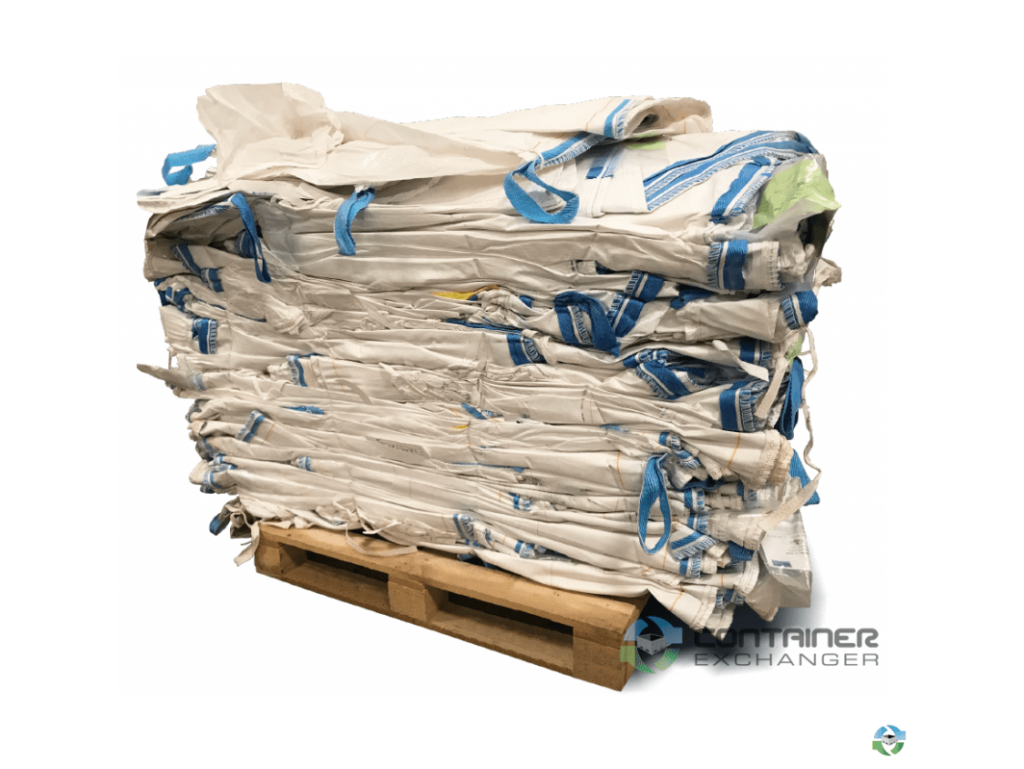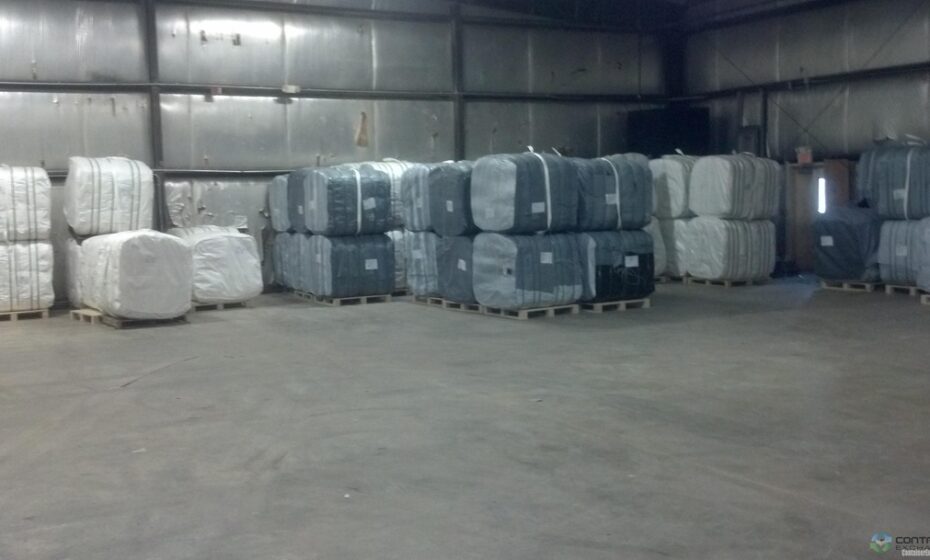When large quantities of products need to be moved safely, companies may rely on flexible intermediate bulk containers (FIBCs) to get the job done. They are highly durable, which makes them perfect for cargo that requires reliability.
If the term FIBC is foreign to you, that may be because you’ve heard one of the other common names. Below is a look at some of these terms, as well as some insight into any relevant differences.
Other Names for Flexible Intermediate Bulk Containers
“FIBC” will not always be the term of choice, depending on who you speak to. Different industries will often have their preferred names, which include:
- Heavy Duty Bulk Bags – “FIBC” may be commonly used, but you may hear this one frequently too.
- Super Sack® – This brand name is trademarked by BAG Corp.
- Tote – Expect to hear this one frequently in the agricultural industry.
- FIBC Bulk Bags
- Bulk Tote
- One Ton Bag
- Jumbo Bag
- Big Bag
- Super Bag
- Bulk Sack
Explore Our Selection of Super Sack, FIBC & Bulk Bags For Sale
What If You Were Told a Bulk Bag Is Not Necessarily an FIBC?
As indicated so far, many businesses will use some of the terms above interchangeably. It doesn’t matter if the packing solutions are being used to carry food-safe items, hazardous materials, or something else entirely. Be that as it may, there are subtle differences between FIBCs and bulk bags. Here’s a quick look at each of them:
- Flexible intermediate bulk containers are very uniform in composition, consisting of woven polypropylene fabric.
- Bulk bags don’t store anything specific, nor will they always be comprised of the same material. There are numerous types of flexible packaging that this general name will apply to.
Purpose
Customers will typically use bulk bags to store items that may or may not have food safety requirements. These may include cement, flour, sand, resin, etc. Many industries use them, especially since there are so many different styles.
FIBCs, on the other hand, are known for their durable composition. Therefore, they are sought after when reliability and strength are essential. For example, industries that have non-negotiable safety and quality requirements will use them.
Composition
Bulk bags, as explained before, can be made up of different things. Some will even be made of woven polypropylene. However, non-woven polypropylene, polyethylene, and other flexible materials are all fair game. Different applications will have different composition and feature requirements, so being able to have that variety helps.
Many bulk material handling operations call for FIBCs and their woven polypropylene fabric. This is especially true when durability is a critical concern.
Compliance
There are not necessarily any compliance requirements for bulk bags. Remember that they speak to a broad range of packaging options. Designs, materials, and features will vary from one type to the next.
FIBCs, on the other hand, tend to be held to more stringent standards. The Flexible Intermediate Bulk Container Association (FIBCA) and the International Organization for Standardization (ISO) are examples of bodies that establish the regulations. Achieving consistent quality is the objective.
Are FIBCs Reusable?
When compared to traditional packaging containers, FIBCs have a longer lifespan. They happen to be sustainable, reusable, economical, and recyclable. Be that as it may, businesses will want to follow a defined set of guidelines to ensure that there is no contamination or failure. These include:
- Cleaning – Get rid of any residue and replace contaminated liners. Feel free to use a pressure washer, brush, or cloth.
- Inspection – Look for damage, such as holes, tears, or frayed edges, so you may discard compromised FIBCs. Note that if you are so inclined, minor damage repair should be no problem.
- Tracking – Keep a log of active duration, products packed, number of times used, etc., to stay aware of the lifespan of each FIBC.
Tips to Help You Shop for Bulk Bags for Your Business
When choosing a packaging solution for your business, consider the following:
- The packaging material must be compatible with the contents to be stored or transported. For example, you don’t want food items in containers that will contaminate them.
- Understand the weight capacity required for the load. While you’re at it, ensuring the dimensions are supported is also essential.
- Handling equipment will need to work well with your solution. Maybe lift loops or spouts would make life easier.
Consider Purchasing Through a Broker

Used bags are often a much better option than new ones. They can handle the workload, and your company can save some money. However, you need to get them from reputable sources.
Making your purchases through a trusted broker is the best option. The purchase experience will be a breeze, as you will not need to concern yourself with any administrative overhead. Brokers will also make essential information easily accessible, such as:
- Dimensions
- Location
- Quantity available
- Previous use
- Capacity
- Expected lead time
You’ll get indirect access to a network of sellers, which provides you with widespread options. Once you’re ready to buy, make your order, and your items will seamlessly be delivered to you.
